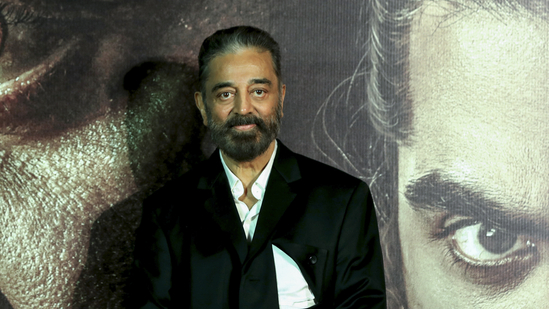Kamal Haasan on Kannada-Tamil Row: A Call for Language Love
Veteran actor and filmmaker Kamal Haasan recently addressed the ongoing Kannada-Tamil language controversy, emphasizing unity and respect for linguistic diversity. In a statement that has sparked widespread discussion, Haasan made it clear that he will “never apologise” for his love of languages, drawing from the wisdom of historians to advocate for harmony over division.
The controversy, which has stirred emotions in both Karnataka and Tamil Nadu, revolves around linguistic pride and regional identity. While the specifics of the row involve debates over language precedence and cultural heritage, Haasan’s response transcends the conflict, focusing on the importance of embracing all languages as part of India’s rich cultural tapestry.
A Historian’s Perspective
Haasan, known for his deep intellectual engagement with history and culture, highlighted that his views are shaped by historians who have taught him to appreciate the interconnectedness of languages. He stressed that languages should unite rather than divide communities. “I have learned from historians that language is a bridge, not a wall,” Haasan reportedly said, urging fans and critics alike to celebrate linguistic diversity.
This isn’t the first time Haasan has spoken on issues of cultural significance. As a filmmaker and founder of the political party Makkal Needhi Maiam, he has consistently advocated for unity in diversity, a theme that resonates in his films like Indian and Vishwaroopam. His latest statement reflects his belief that love for one’s language should not come at the expense of disrespecting another.
The Kannada-Tamil Row: What’s It About?
The controversy stems from debates over the historical and cultural prominence of Kannada and Tamil, two Dravidian languages with rich literary traditions. Tamil Nadu and Karnataka, neighboring states with deep cultural ties, have occasionally seen tensions over language pride, especially in the context of cinema and public discourse. Social media has amplified these discussions, with some factions demanding apologies or clarifications from public figures like Haasan.
Rather than fueling the divide, Haasan’s response calls for mutual respect. He emphasized that his love for Tamil does not diminish his respect for Kannada or any other language. This stance has been praised by many as a mature and inclusive approach to a sensitive issue.
Why This Matters
In a country as diverse as India, where languages and cultures coexist in a delicate balance, Haasan’s words serve as a reminder of the power of unity. Language, often a source of pride, can also become a flashpoint for division if not handled with care. By refusing to apologize for his love of languages, Haasan is not dismissing the concerns of either side but instead encouraging a broader perspective—one that celebrates all languages as part of India’s shared heritage.
For fans of cinema, Haasan’s statement also underscores his role as a thought leader in the industry. His ability to navigate complex cultural issues while maintaining his artistic integrity is a testament to his stature as one of India’s most respected filmmakers.
Looking Forward
As the Kannada-Tamil row continues to spark debate, Haasan’s call for “language love” is a timely message. It’s a reminder that India’s strength lies in its diversity, and no language or culture should be pitted against another. Whether you’re a Tamil cinema enthusiast, a Kannada literature lover, or simply someone who appreciates India’s multicultural fabric, Haasan’s words invite us all to embrace dialogue over discord.
What are your thoughts on this issue? Do you think Haasan’s approach can help bridge the gap between linguistic communities? Share your views in the comments below, and let’s keep the conversation going!
Originally published on kishanbaraiya.com

